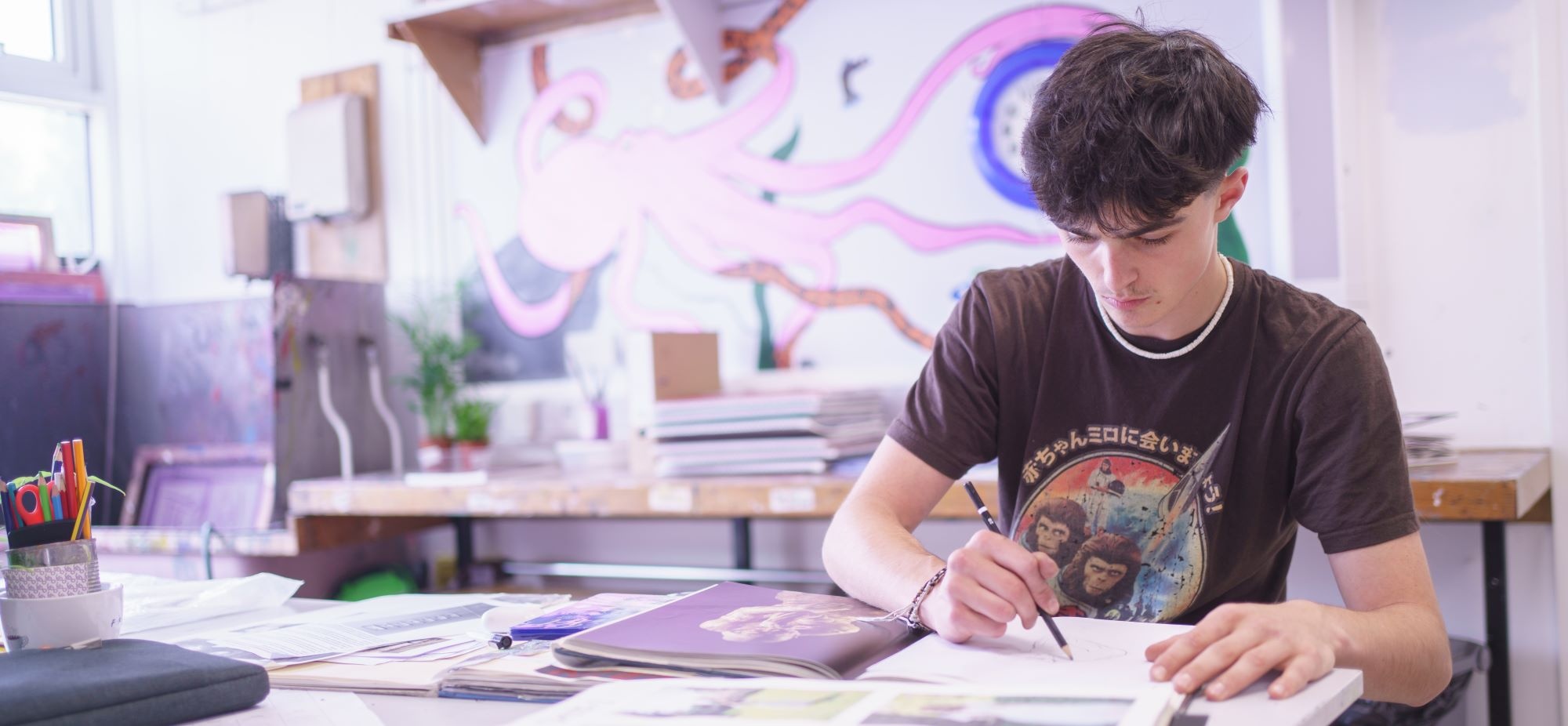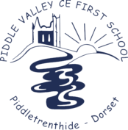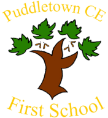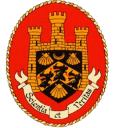
Fine Arts

Why study this subject?
Course overview
The Purbeck School Fine Art course offers you a well-rounded and dynamic approach to developing your artistic skills. We combine traditional and contemporary techniques to provide you with a strong foundation in the essentials of art, whilst challenging you to experiment with contemporary methods and ideas. You will be taught contemporary and conceptual presentation methods to support you in conveying your personal ideas and observations through your work. This will encourage you to think critically and develop your own unique artistic voice.
Year 12
The first year of the course is foundational. You will learn to explore the formal elements of visual art in greater depth. You will gain a stronger understanding of the ways in which artists draw upon the history of art and the work of contemporary artists for inspiration. During the first year you will be encouraged to question your assumptions about what art can be and to challenge your current ways of working in order to move beyond your comfort zone and develop new skills and approaches.
Year 13
During the second year of the course, you will choose a subject that will form the basis of your ‘Personal Investigation’. This unit challenges you to research, plan and manage your own coursework project and is a stepping stone to the skills required for higher education. The outcome will include a 1000 to 3000-word written component and original artwork that shows your response to your chosen theme. The work in the second year of the A-level course should include the application of the skills, knowledge and understanding that were gained in the first year. The course ends with a 15-hour practical exam (conducted over 3 school days) that you will prepare for over a number of weeks.
Your final grade is based on your coursework (usually based upon the portfolio produced in year 2), which is worth 60%, and the externally set assignment (15-hour exam), which is worth 40% of the overall grade.
Where the course leads
The government estimates that creative industries generated £126bn in gross value added to the economy and employed 2.4 million people in 2022 (House of Lords Library). Many of our students progress onto a Foundation Course at the Arts University Bournemouth before studying a visual arts degree. Former students have gone on to work as artists, teachers, animators and social entrepreneurs.
The portfolio produced during Years 12 and 13 will highlight your skills and show Higher Education providers that you are adept at many different making and presentation processes.
Should you choose to take a different route for Post-18, there are opportunities to gain apprenticeships with local artists, studios or galleries. You can continue to develop your skills after leaving school and your ability to reflect, be critical, share your opinions and generate ideas will help you in any industry of your choice.
Entry requirements
To study A-level Fine Art, you will need to have achieved a GCSE Art grade 5 and/or a strong portfolio of work demonstrating a commitment to and interest in Art. A basic understanding of the application of formal elements and some previous experience/practice is desirable. Students must seek further advice from the specialist staff before enroling and be interviewed prior to being accepted on the course.
For further advice, contact: Mrs L. Field (Head of Art and Photography)
USEFUL LINKS
- Exam board: OCR (H601) - www.ocr.org.uk/specification-accredited-a-level-gce-art-and-design-h600-h606.pdf













